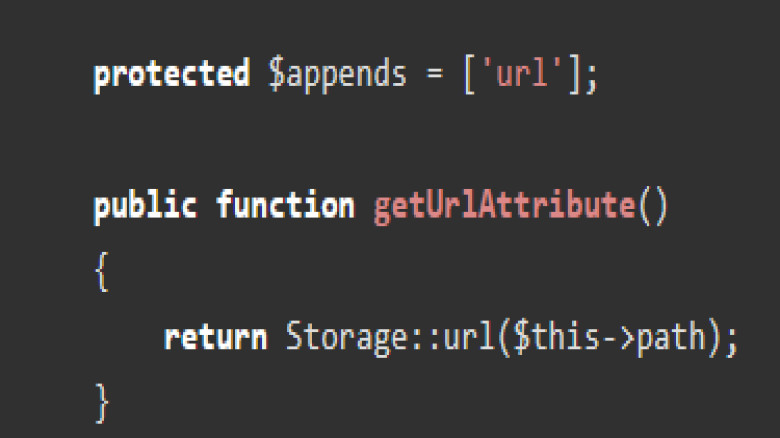Adding a Custom Column with a Value to a Laravel Collection
In Laravel development, there are situations where we need to enhance our data collections with additional columns that are not directly stored in the database. These custom columns can contain computed or derived values, providing a more convenient way to work with the data. In this article, we will explore how to add a new custom column with a value to a Laravel collection.
Scenario: Document Management
Consider a scenario where you are building a document management system using Laravel. You have a Document model that represents documents stored in your database. Let's say the model has the following properties:
<?php
namespace App\Models;
use Illuminate\Database\Eloquent\Model;
class Document extends Model
{
/**
* The accessors to append to the model's array form.
*
* @var array
*/
protected $appends = ['url'];
}In this setup, you have a custom attribute url that you want to append to the model's array form. This attribute will contain the full URL of the document based on the path column.
Adding the Custom Column
To achieve this, you'll first need to define an accessor method in your Document model. Laravel's accessor methods allow you to dynamically compute values for attributes. In our case, the method getUrlAttribute computes the url attribute based on the path column using Laravel's Storage facade.
<?php
namespace App\Models;
use Illuminate\Database\Eloquent\Model;
use Illuminate\Support\Facades\Storage;
class Document extends Model
{
/**
* The attributes that are mass assignable.
*
* @var array
*/
protected $fillable = [
'document_id', 'name', 'original_name', 'extension', 'description', 'path'
];
/**
* The accessors to append to the model's array form.
*
* @var array
*/
protected $appends = ['url'];
public function getUrlAttribute()
{
return Storage::url($this->path);
}
}
Accessing the Custom Column
With the custom column defined, you can now easily access it within your code. Let's take an example where you want to retrieve a specific document's URL. This can be done in your controller or even using Laravel's Tinker.
<?php
namespace App\Http\Controllers;
use App\Models\Document;
class DocumentsController extends Controller
{
public function index()
{
$document = Document::find(4);
dd($document->url);
}
}By accessing $document->url, you automatically trigger the getUrlAttribute method, which computes and returns the URL based on the document's path.
Conclusion
Adding custom columns to Laravel collections provides a flexible and efficient way to include derived or computed data in your models. By utilizing accessor methods, you can enhance your models with attributes that are not directly stored in the database, making your code more expressive and easier to work with.
In this article, we've explored how to add a custom column with a value to a Laravel collection, using the example of a document management system. By following these steps, you can effectively extend your data models to cater to your application's specific needs. This approach empowers developers to work with data in a way that aligns with their application's logic, ultimately leading to more maintainable and feature-rich code.



Leave A Comment